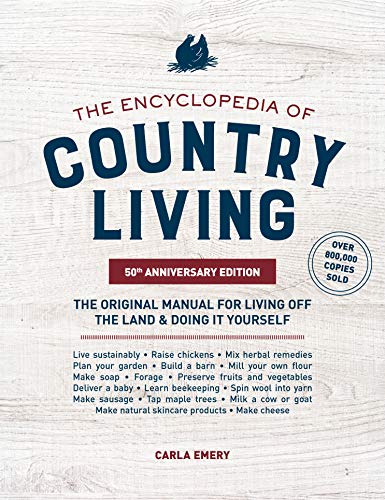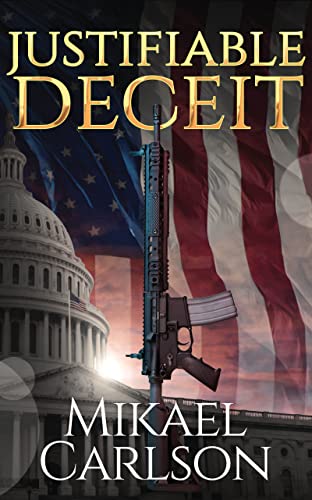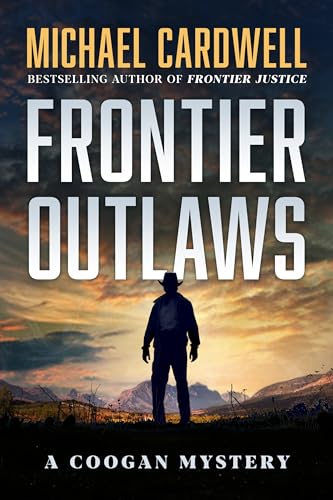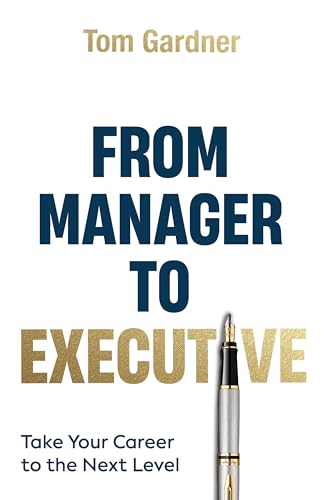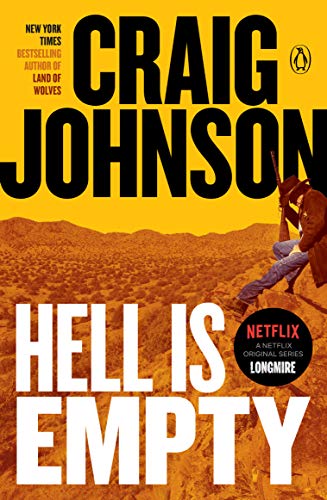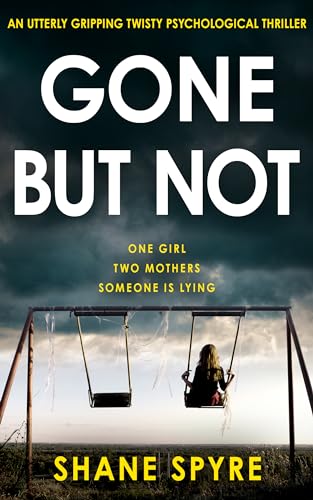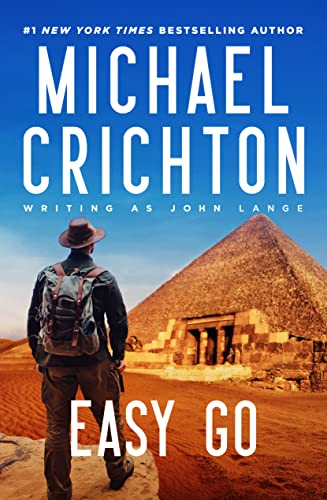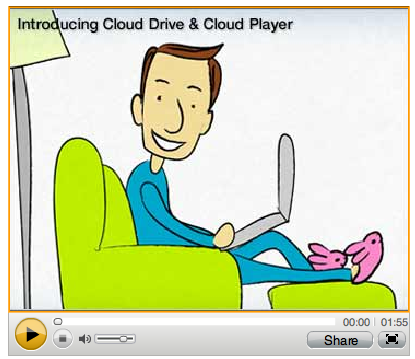Ending the Global Casino
By Ad Broere, author of Ending the Global Casino?
Based on an interview printed in Management and Literature (June 2010)
According to some economists, the extent and persistence of the financial and economic crisis to which the world is still exposed indicate that the sustainability of the global financial system has expired. They argue that it is necessary for us to act. Ad Broere, a former banker and now independent business consultant, lecturer, and author of the titles A Humane Economy (Dutch) and Ending the Global Casino?, shares this opinion.
Despite the airy approach in your books, your message is not very cheerful.
I try to clarify-in an accessible way-how our economy and our monetary system work. The famous cartoonists Jos Collignon and Karl Wimer gave me permission to add a number of their brilliant cartoons to the books. In regard to the message, the main conclusion is that the monetary system has become dominant over the real economy. Therefore it is an imminent danger to us all. The financial system is a world all its own, with 99% of the financial transactions being purely speculative-and I am talking about the multitude of derivatives, such as collateralized debt obligations, credit default swaps, and interest swaps. In addition, the short-term profit goals of big investors in shares are a disturbing factor for the well-being of the real economy. In 2007, 40% of the U.S. gross domestic product was based on financial transactions. It is not just the risks that these speculative transactions cause, but also the enormous amounts of money being withheld from the real economy. Consequently, investments necessary for developing new and sustainable technology, for example, cannot be done because there is no money available.
Financial products such as derivatives have been developed by banks. Are they responsible for this development?
The bank managers are certainly responsible for the over-the-top speculative activities. It is their task to manage risks, but big bonuses were more attractive than good stewardship. However, banks serve their shareholders. Shareholder value is the main focus of virtually all big companies, including banks. During the recent economic upswing, banks have taken big risks to make big returns. Shareholders have benefited from this. When the crisis hit the financial world, all those risks were taken well beyond their limits, which became visible. “Suddenly” there were the toxic assets. Governments in many countries held the opinion that the banking industry should be rescued. We all know how they did it: at the taxpayers’ expense. Bank profits are privatized, losses are socialized. The return to business as usual after the bailout makes me deeply worried about what will come next in the near future. Most countries’ treasuries are exhausted; a second bailout is impossible, even if politicians would be that stupid to want this.
What is your opinion about the measures taken to prevent future crises, such as Basel III?
They are insufficient and also unrealistic. Ben Bernanke, the chairman of the American system of central banks, called for an increase in financial buffers that banks must maintain. He stated correctly that a lack of liquidity is a major risk factor. Recently the Basel III guidelines were accepted by the G20. Banks should increase their risk-bearing capital to a at least 7% by 2019. Currently, the levels for the majority of banks are below 4% and in many cases barely reach 3%. For a large bank such as HSBC, an increase in equity of just 1% equals 26 billion U.S. dollars. Banks should be avoiding risk. However, the lower the risk, the lower the return. Most banks will have a hard time strengthening their equity. What is worse, the toxic assets have not been disposed of. Like nuclear waste, they are still waiting somewhere ‘offshore’ for their owners to really clean up the mess. No, I do not think the banking industry will be able to survive the coming events in their present shape. In Ending the Global Casino? I explain that we should not be mournful about this when it happens. This present monetary system shows a number of serious flaws that cannot be solved simply by patching it up. One such flaw is the fractional reserve held by banks. The extremely low solvency makes banks very vulnerable, which was recently proven to be true.
In your opinion, is a downfall of the present monetary system unavoidable?
Unfortunately, yes. Therefore, it is important that as many people as possible are aware of this unhappy event before it happens, because the solution begins with awareness. I am certain that we are in the middle of a transition to an era in which hierarchy and hierarchical thinking come to an end. We should stop blaming each other for everything that is wrong in our lives. The starting point of a better world is ourselves. There are many initiatives all over the world highlighting how people are responding to that new era.
If you have money available, you can invest in SMEs led by integer people who contribute to a better world by developing new sustainable products and technologies to clean and preserve the environment. Forget about the short-term big profits. Really good developments need time to mature. In Sweden, the JAK Bank is active. This is an interest-free bank. No interest is charged on loans, and no interest is paid on savings deposits. If there were no interest, prices of all products could be reduced by at least 40%. Houses would be more affordable for the younger generation. At present, young people are often heavily in debt because of the sky-high mortgages they have to pay off, including interest. Depositing (part of) your savings in an interest-free bank implies a substantial contribution to our common prosperity.
If you have a company, open your mind to other ways to finance the business, such as by participating in a complementary currency organization. If the traditional currencies become scarce, complementary money can help to keep the (regional) economy going. In Ending the Global Casino? I clarify this opinion in more depth. Switzerland’s complementary currency has been successful for more than 75 years.
If you hold all the shares in your company, consider what Ernest Bader did in 1951. All his and his wife’s shares of the company Scott Bader were put into a trust owned by the collectivity of the employees. He named it a commonwealth-the correct name because shareholder value became all employees’ value.
In our role as consumers, we can opt to end our consumerism attitude. We can stop listening to the luring voice of marketers. We can stop thinking that more possessions mean more happiness. We make our own decisions and buy sustainable, biodegradable products, renewable energy, etc. Indeed, 95% of all goods we buy become waste within five years. The immense mountain of waste causes great trouble, mainly because of the wide variety of toxic substances in it. This problem is ‘exported’ to the third world.
Are you optimistic or pessimistic about the future?
I am neither an optimist nor a pessimist. I am well aware that our future depends on the number of people who will awake from their almost hypnotic sleep. I sincerely hope that in the near future many will share the conviction that humanity can only survive if we say goodbye to selfishness, greed, and the race for ever-more possessions to stop allowing a system that stimulates those old values to rule over our lives anymore. In my opinion, it is crucial that we let love guide us in all our actions. I know that love is an often misused and misinterpreted word. Some regard those who speak about love as weak, especially those who fear its power. In my opinion, it is the unlimited creative, live-giving energy. We need it to create a better future for the world and all living creatures. Anything that comes into being inspired by love serves that goal. My deepest hope is that we are able to say-truthfully-in the near future: Yes, we can! May millions of roses bloom.
CHAPTER 7
Financial and Economic Crisis
The recession that hit the World in 2007 began with a financial crisis. The causes of this financial crisis have been explained in Chapter 1 above. Yet the question why a financial crisis should be followed by an economic crisis remains unanswered. Besides, the concepts financial and economic crisis are often jumbled up. So what is the connection between the two?
Simply put it is the money that connects the monetary and economic systems. Why is it that money plays such a crucial and dominant role? The answer on this question is to be found in the banking system. There is a mechanism that enables bankers to increase and to contract the money supply. If the money supply is ample economic activities are promoted. However, if the money supply contracts economic activities will be discouraged. Economic activities are thus dependent on the money supply. Research on the development of money supply, Gross Domestic Product (GDP), and income over the years 1990 – 2006 in the Netherlands (source CBS), shows that the GDP (the value of all that the economy produces in goods and services in a certain country in a year) more than doubled over that period. Income (from wages and salaries) also increased but less than the GDP. This means that employees did not fully benefit from the higher GDP. However, the development of the money supply increased amazingly to nearly sevenfold of what it was in 1990. This teaches us a number of things:
– Firstly, that in times of economic growth, the money supply increases. However, this is not necessary in line with the growth of the GDP.
– Secondly, that employees do not always get the full – relative – benefits of an increasing GDP, because the wages and salaries might not hold pace with the growing GDP.
Where does all this money not justified by the growth of the GDP go to? Part of it might be explained by investments. Before the return on investment is earned there is the expenditure for the investment itself. However, theoretically, an investment would lead to the same increase in both money supply and GDP. For example, if one buys a new house and borrows the full amount to finance this, the money supply increases. At the same time the builder earns the same amount by building the house for the contracted price. So, these two activities, borrowing money and building a house, will lead to the same increase in money supply and in GDP. The only sensible conclusion that can be drawn from this, is that a lot of money has been issued that did not lead to an equally higher GDP, and neither to more private wealth of those who have their income from wages and salaries. Who says common people have lived a too luxurious life in recent years?
In the euro zone the money supply increased during the years 20022009 at 75%, whilst the GDP grew with no more than 10%. So, the phenomenon I have depicted above is not typically Dutch. In times of economic recession the money supply contracts. During the great depression in the thirties of the last century the money supply decreased by one-third. This number is the outcome of a research done by the economist Milton Friedman (Capitalism and Freedom).
In the case of this crisis there is essentially no difference. The money supply has a tendency to contract in the U.S. as well as in Europe. That it remains more or less on the same level, is due to the massive injections of currencies by the respective governments. For disciples of the monetary economic theory this is blasphemy. The idea is that by contracting the money supply the economy cools down, and will regain stability on a lower level. That this goes together with a lot of human misery (e.g. unemployment, loss of property, poverty) is not the primary concern of these economists. It is the system that is sacred, because in their opinion it is nature’s way. Seven fat years, seven meager years.

Is the ‘solution’ chosen by the U.S., the euro zone countries, U.K., Japan, etc. the right one? I don’t think so. It is no more than postponing the inevitable moment that debts have to be cut back. Now already Greece, Iceland, Spain, Portugal, Italy, Ireland are deeply in trouble. More countries will follow if the present policies of ‘keep the economy going and hope that the economy will find its way up again’ have lost their effect. The European research institute LEAP/E2020 2 compares the approach of the governments of countries to their troubled economies with the treatment of people who are suffering from a grave disease, with no prospect on recovery. As long as the system remains unchanged, crises will occur. It is inherent in it. Countries, businesses, and private households are heavily in debt. Debt that has been created during times of booming economy. Due to the crisis, debt has become a too heavy burden. People, businesses and countries are not able to repay their debts. Large numbers of private and business bankruptcies, and countries in trouble are the consequences of this. And the rich? Well, this is what Thomas Jefferson, third President of the U.S. said about it:
‘If the American people ever allow private banks to control the issue of currency… the banks and corporations that will grow up around them will deprive the people of their property until their children wake up homeless on the continent their fathers conquered.’
Banks and corporations. Yes, but in that sense that they are merely the instruments of the financial elite. The cynical part is, that they ‘harvest’ the properties of people during times of crisis. First countries, businesses, and private households are flooded with money (as debt) during times of a booming economy . This money has been created out of thin air, so strictly spoken no man owns it, neither does the financial elite. Consequently, man is deprived from his property during times of a downturn in the economy because being unable to repay the debts the property is appropriated by the banks. The only reason why this can happen over and over again, is because we collectively have come to believe that money has value in itself.
Money has no value, no more than being a medium of exchange. Neither is money a product. The real value can be found in what we produce in goods and services. People, working together in a business or organization create a value chain. The only real purpose of money is to make things possible, and to support the creation and maintenance of these value chains. If we point an accusing finger at the financial elite, we should be aware that we are the ones that have collectively believed in this monetary system, as if it were ‘God-made’, and therefore allowed it to be what it has become.
In Chapter 5 I have explained that due to the crisis the position of small and medium sized enterprises (SMEs) is under pressure. Our present monetary system is rather hostile to SMEs. In 2009 a report was published by the Organization for Economic Co-operation and Development (OECD) titled ‘SMEs and Global Crisis’. This report underlines the important role SMEs play in the economies of countries all over the world. At the same time the OECD explains why SMEs have a hard time nowadays to borrow the money needed to finance, and expand the business. Let alone the money needed for innovation.
Importance of SMEs in “normal times” and in times of crisis
SMEs and entrepreneurs play a significant role in all economies and are the key generators of employment and income, and drivers of innovation and growth. In the OECD area, SMEs employ more than half of the labour force in the private sector. In the European Union, they account for over 99 % of all enterprises. Furthermore, 91 % of these enterprises are micro-firms with less than 10 workers. Given their importance in all economies, they are essential for the economic recovery. Even in ‘normal’ economic conditions governments have recognised that, to survive and grow, SMEs need specific policies and programmes – hence the comprehensive range of SME measures currently in place across the OECD members. However, at the present time, SMEs have been especially hard hit by the global crisis. These firms are more vulnerable now for many reasons: not only has the traditional challenge of accessing finance continued to apply, but new, particularly supply-side, difficulties are currently apparent. It is important to stress that SMEs are generally more vulnerable in times of crisis for many reasons among which are:
it is more difficult for them to downsize as they are already small;
they are individually less diversified in their economic activities;
they have a weaker financial structure (i.e. lower capitalisation);
they have a lower or no credit rating;
they are heavily dependent on credit and
they have fewer financing options.
SMEs in global value chains are even more vulnerable as they often bear the brunt of the difficulties of the large firms.
Impact of the global crisis on SME and entrepreneurship financing Although there is no internationally agreed definition of small and medium sized enterprises (SMEs), the evidence suggests that these firms are being affected by the financial and economic crisis across economies. There is evidence that SMEs in most countries are confronted with a clear downturn in demand for goods and services if not a demand slump in the fourth quarter of 2008. Many expect a further worsening to come. For SMEs there are two related stress factors:
a) increased payment delays on receivables which added – together with an increase in inventories- result in an endemic shortage of working capital and a decrease in liquidity and
b) an increase in reported defaults, insolvencies and bankruptcies.
© OECD 2009
The above section of the OECD report makes clear that SMEs can be considered the backbone of a country’s economy. Above all, SMEs often are the main suppliers of employment. SME’s employ more than half of the labour force in the private sector of countries in the European Union. In this crisis the vulnerability of SMEs comes forward in the development of sales, liquidity problems, and the restrictive attitude of banks. A consequence of this is that many SME’s have to lay off employees and worse, go bankrupt. An increasing number of SMEs have gone bankrupt. For example, the Dutch bankruptcies register shows an increase of 24% in 2010 compared to 2009. In the U.S. business bankruptcies have risen from 30,741 in 2007 to 49,091 in 2008, and 61,148 in 2009. For the correct interpretation of these numbers one should consider that business bankruptcies in the U.S. are often prevented by some form of debt agreement. Not only for-profit SMEs also not-for-profit SMEs, like museums and theatres are victims of the crisis. For example in Germany:
A study released Wednesday claims that every 10th museum or cultural institution in Germany may be forced to close by 2020 due to lack of funds. The report was released by management consulting firm A.T. Kearney. Around 8 billion euros ($10.2 billion) in public funds are given each year to German cultural institutions, and the study’s authors expect an eight to 10 percent drop in that number by 2020. The report also claims that museum operating costs will increase by 24 percent over the same period.
“Due to the financial crisis, cities and counties have to invest their money elsewhere and not in culture. We expect to see this trend continue over the next decade,” Claudia Witzemann, head author of the study, told Deutsche Welle.
SOURCE: HTTP://WWW.DW-WORLD.DE 19 AUGUST 2010
Also employment is becoming more and more of a problem in Europe and North America. The unemployment figures suggest a reasonably stable situation. Nevertheless, the number of jobs available in the private sector especially SMEs, and qualified jobs have dropped dramatically, in The Netherlands by more than 500,000 as from 2007 until 2010. Again I will use the opinion of readers of The Guardian, this time about the unemployment/employment situation in the UK to make clear how bad things are, also in that country:
Re: article dated 14th July 2010 that indicates unemployment figures have recently fallen (& the corresponding statistics to ‘prove’ this claim). Given that it is summer it is hardly surprising that unemployment has fallen slightly. Having worked for the Dept for Work & Pensions for 20 years I am aware that seasonal jobs in the tourist sectors, catering & hospitality swallow up a proportion of the unemployed. In northern seaside towns like Blackpool jobs are a plenty in the summer season, compared to winter. However, when autumn comes around just watch the figures rise again as temporary, seasonal work ceasing. The government’s recent statistics might look good on paper, but not only are many of the available jobs part time, they are also temporary. Additionally, they are not necessarily the jobs that make long term careers, but rather ‘fillers’ for the hundreds of university graduates who find themselves ‘frying burgers’ to pay off their student loans, instead of the careers which they had hoped a university education might offer them. (There is nothing wrong with frying burgers, by the way, but such positions are not going to pay the student loan off so quickly, or in the long term pay a mortgage & support a family). Don’t be fooled by statistics which show a drop in unemployment figures. The government congratulate itself on falling unemployment figures when the majority have been given the opportunity to do meaningful work which offers job security & pays the bills! Employment lags economic recovery by some distance, since the economy has barely scraped from recession and its growth is at best extremely low, how is it possible that there is a record drop in the claimant count?
I would suggest the record drop is not because these people have found work, but simply have dropped from claiming the dole or have moved to training. Even the States which exited from recession long before the UK is still suffering job losses but somehow in the UK we have managed to create some kind of a miracle of employment?
There are, and always have been, two Britains that somehow coexist. In Feelgood Britain people still have jobs, still have careers, and are feeling really quite good about the substantial reductions in their mortgage repayments.
In Non-Feelgood Britain, the part that the Labour party was meant to care for and support, people who, for the most part, are used to living near to or below the poverty line on low wages or no wages, life has become even harder, and in some cases intolerable – due to greater unemployment; reduced working hours, reduced wages and reduced opportunities; inflation, higher rents, etc.
SOURCE:THE GUARDIAN, UNEMPLOYMENT FORUM DISCUSSION 2010
In August 2010 youth unemployment reached 567,000 in the U.K. The universities tend to be overcrowded as more and more students extend their education rather than seek employment. This is a time where again as in the thirties of the 20th century academics and highly-trained professionals have no other choice than frying hamburgers to earn a (very modest) living, pay their expensive mortgages, and pay off their student loans. Simply because there are a limited amount of qualified jobs available. In The Netherlands, and presumably also in other European countries, a way has been found to pimp the unemployment statistics up. Some 900,000, mainly young people became so-called Self-Employed Entrepreneurs Without Employees (ZZPers), which actually means that they have a business but, for the greater part, (virtually) no work.
SMEs that could play an important role in the supply of new and especially qualified jobs, are not in the position to do so. Who will stand up for the SMEs? Apparently not the banks. I will come back on that subject. The OECD feels responsibility for SMEs. Again a fragment from the report ‘Impact of the Global Crisis on SMEs’:
The OECD Working Party on SMEs and Entrepreneurship (WPSMEE), in close cooperation with its parent Committee, the CIIE:
Could promote a Scoreboard on SME and entrepreneurship financing data and policies (a pilot project will be carried out in the framework of the 2009-2010 programme of work in view of the “Bologna +10” High level Meeting); and
Should monitor, report on, and discuss SME and entrepreneurship financing trends on a regular basis.
As a follow-up, the WPSMEE should also carry out, in the framework of its programme of work 2009-2010, an assessment of the effectiveness of measures taken to assist SMEs and entrepreneurs in weathering the financial and economic crisis, as reported in the present report.
Finally, the OECD should also continue facilitating the Tripartite Dialogue between governments, SMEs and the financial institutions, to periodically review progress in strengthening SME and entrepreneurship financing.
The OECD wants to promote the discussion between governments, SMEs and financial institutions, for they need to monitor, and report on the developments around SMEs. More they cannot do. The OECD has no financial power like the BIS Bank has. The Tripartite Dialogue until so far has not had any real impact. Bankers say that the loans to SMEs are at a normal level, and that it is quite clear that in times of crisis ‘things happen’. Governments try to find solutions that do not cost them too much money or increase the risk of having to pay for business failures in the future. And the SMEs and their representatives like in the Netherlands ‘MKB Nederland’ keep on reporting about the many businesses that are in deep trouble, and about the often harsh and selfish attitude of banks towards SMEs. In the end the stories are trifled as ‘nagging’. And the status quo remains.
Banks have never considered SMEs as their core business. It is not where the ‘big money’ can be made. Furthermore, banks do not see the need to consider themselves socially responsible. Their main goal is to create shareholder value. The basis for this is the above mentioned fractional banking. With a relatively very low amount of equity (owned by the shareholders), banks lend out money nine times or more as what the shareholders have paid-in. Take, for example, a starting bank. This bank has fulfilled all legal requirements and received a banking license. The shareholder has paid in $ 1 million. Does the banker have to wait for savers before he can lend out money? No, he is allowed to create new money. The only thing the banker needs is a signature under the loan contract from the borrower. During the first year of its existence the bank lends out $ 9 million (created out of thin air) at an interest of 10%. Interest income therefore is $ 900,000. Operational expenses are $ 400,000. Net income (ignoring taxes) is then $ 500,000. The return on investment for this new banker is $ 500,000/$ 1 million = 50%!
This is how fractional banking works. The most important goal for the young banker is to find the ‘good risks’. That is, finding lenders that pay a fine amount of interest, and at the same time carry a low amount of risk. Therefore, commercial banks will be inclined to do acquisition on well-established, bigger companies. SMEs are not in their core potential client group. It must be really annoying for banks that governments push to give loans to SMEs. Reluctant as they are, in many cases banks are only willing to consider this if governments grant subsidies and guarantees. Back to the example. The new banker has lent out the total amount of $900,000 to SMEs. Suddenly there is the CRISIS. 50% of the businesses go bankrupt. This means a loss of $450,000, and a big impact on profitability. His own capital has been reduced to almost half of what he paid in. This shows clearly why solid bankers are risk averse, and also why they are generally spoken not pleased with a too big part of SMEs in their portfolios. And what about savings? Banks do have savings from private persons, organisations, and businesses. Banks do not really care for them either. They are a source of available capital. If someone puts $ 1 million savings on the bank, there is a basis for lending out another $ 9 million, again created out of thin air. But giving guarantees that the savings will be paid back under all circumstances? No, that is -again- not the bank’s responsibility.
Recently the Basel Committee (BIS) stated as follows:
The Basel Committee is designing ‘resolution schemes’. Central banks will be allowed in the future to disown banks. Shareholders will be set aside, and creditors have to accept losses.
Who are a bank’s creditors? Amongst others, they are the savers. In other words, banks treat savers as if they were the owners of a bank without giving them the privileges and the returns that shareholders receive. If it had not been a serious report, produced by serious and experienced men, one would be inclined to laugh about it. What was one of the main conclusions in a report on The Future of Banks, issued on 7 April 2009 in The Netherlands? ‘Banks should direct themselves primarily to savers (private and business). Savers have paid-in more (debt) capital in banks than shareholders.’ The observation, made in the same report that banks have a public utility function is also a good one. Banks should have a public utility function, but they do not because it is not their mission.
Of course nothing has changed since the issue of the report. Almost all commercial banks would not want savers to interfere with their business. Neither do they see themselves as serving a public goal. The conclusion is, that banks in their present form are unable to serve social economic goals. They are simply not made for this. Therefore, reform of the banking system is not enough.
The only real solution would be:
ending fractional reserve banking,
ending shareholder value as the basis for banking activities, and
not allowing banks to issue money out of thin air.
In the days of Benjamin Franklin and the Colonial Script, governments should issue debt-free money themselves. Enough to support a healthy economic development, with money in a purely subservient function.
This would truly open the door for SMEs especially those that contribute to a sustainable, and environmentally friendly economy.
Research institute LEAP 1 published in 2010 an article that makes the influence of the monetary system on the economy quite clear:
Where the real big money is…..Goldman Sachs’ role in this Greek tragedy… and the next sovereign defaults:
In the « Greek case », just like in every suspense story, a « bad guy » is needed. In this phase of the global systemic crisis, the role of the « bad guy » is usually played by one of Wall Street’s big investment banks, in particular by the leader of the gang, Goldman Sachs. The « Greek case » is no different. This New York investment bank is directly involved in the budgetary conjuring tricks which allowed Greece to qualify for Euro entry, whilst its actual budget deficits would have disqualified it. In reality it was Goldman Sachs who, in 2002, created one of its cunning financial models of which it holds the secret and which, almost systematically resurfaces several years later, to blow up the client. But what does it matter, since GS (Goldman Sachs) profits were the beneficiary!
In the Greek case what the investment bank proposed was very simple: raise a loan which didn’t appear in the budget a swap agreement(1) which enabled a ficticious reduction in the size of the Greek public deficit. The Greek leaders at the time were, of course, 100% liable and should be subjected to Greek and European political and legal process for having cheated the EU and their own citizens within the framework of a major historic event, the creation of the single European currency. But, let’s be clear, the liability of the New York investment bank (as an accomplice) is just as great, even greater perhaps because Goldman Sachs was well aware of what tricks they played.
Considering the importance of Goldman Sachs in world financial affairs these last few years, nothing that this bank does should leave governments and legislators indifferent. It is Paul Volcker, current head of Barack Obama’s financial advisors, who has become one of the strongest critics of Goldman Sachs’ activities. We already had the occasion to write, at the time of the election of the current US President, that he is the only person in his entourage having the experience and skills to push through tough measures and who, at this moment, knows what, or rather whom, he is talking about. With this same logic, on the issue of transparency in financial activities and state budgets and using the ill-fated role of Goldman Sachs and of the large investment banks in general as an illustration, it would be beneficial for the European Union and its five hundred million citizens, to exclude former managers of these investment banks from any post of financial, budgetary and economic control (ECB, European Commission, National Central Banks). The mixing of these relationships can only lead to even greater confusion between public and private interests, which can only be to the detriment of European public interests. To begin with, the Eurozone should immediately require the Greek government to stop calling on the services of Goldman Sachs.
If the head of Goldman Sachs believes he is « God » as he described himself in a recent interview in 2009, it would be prudent to consider that his bank, and its lookalikes, can seriously behave like devils, and it is therefore wise to draw all the consequences.
To conclude, those who seek where the next sovereign debt crisis will surface: simply look for those states which have called upon Goldman Sachs’ services in the last few years and you will have a serious lead!
SOURCE: LEAP E 2020 (2)
(1) A swap is a means by which a borrower can exchange the type of funds he can most easily raise for the type of funds he wants, usually through the intermediary of a bank. For example, a UK company may find it easy to raise a sterling loan when they really want to borrow Deutschmarks; a German company may have exactly the opposite problem. A swap will enable them to exchange the currency they possess for the currency they need. (Oxford Dictionary of Business)
(2) Leap/Europe 2020 (also known as European Laboratory of Political Anticipation) is a think tank established to analyze and anticipate global economic developments from a European perspective and to publish a paid-subscription monthly economic forecast bulletin. It was founded in 1997 among others by Frank Biancheri the founder of the European student network AEGEE(Association des États Generaux de l’Europe) and one of the few pan-European parties,Newropeans. LEAP/E2020 claims to be the first European website of anticipation, independent from any government or lobby.
*
‘ Ad Broere explains that financial crises, scarcity, debts, and interest are not Nature’s Way, and that the present monetary system is not the only choice we have. We can say goodbye to this global casino, and opt for a solution in which money plays a subservient role. We can choose for an economy that invests in a better future for the planet and all its living creatures. Our reward may be a high and sustainable quality of life for us and for our children. However, this will require a completely different attitude towards money and economy.
You will learn about things you might never have been aware of. It will transform your vision on money and economy completely.
has been active for more than thirty years in banking, consulting, and education. Widely experienced and highly respected, he is more than capable of clarifying the strengths and weaknesses of the economy.
Ad Broere explains in a comprehensible and non-academic way, why breaking with the present monetary system is vital for the future of planet and people.We can opt for a solution in which money plays the subservient role it should have, he says. However, this will require a completely different attitude towards money and economy.
to download Ending the Global Casino?
(or a free sample) to your Kindle, iPad, iPhone, iPod Touch, BlackBerry, Android-compatible, PC or Mac and start reading within 60 seconds!
 Free Kindle Nation Shorts – March 31, 2011
Free Kindle Nation Shorts – March 31, 2011
